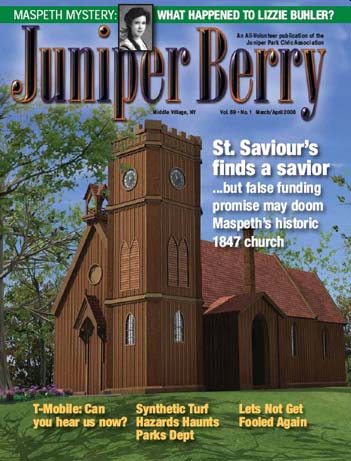Barbara Rebhan was born in Bavaria, Germany in 1903. She was the youngest of eight children and has wonderful memories of her youth in her small town. She was full of life, had a beautiful singing voice and a talent for the theatre. However, at age 20 Barbara wanted to go to America where her two sisters were living.
When she arrived in New York, she was very homesick and did not like the noise of the city. She cried all the time as she missed her home and especially her mother. As she had a sister in Kansas, she was sent there, and after five months her sister “married her off” to a farmer. He did not speak German and Barbara didn’t speak English. However, he was a very good man.
Life in Kansas was very harsh as there was no running water or electricity. Water was sparse and had to be pumped for the animals by wind mills. If there was no wind, there was no water. They went into town once a week for just 3 items; flour, sugar and tobacco. Otherwise, Barbara made her own bread, churned butter, raised chickens, hogs and had a large vegetable garden. She also made her own clothes, ordering materials from Chicago out of a catalog. The biggest hardship for her was not being able to go to mass. A priest would come to their little mission church on the prairie only once a month. Barbara and her husband buried a little child, just 4 days old, but also had a beautiful healthy daughter.
As difficult as life was in Kansas, no one was prepared for the Dust Bowl of the 1930s. Barbara and most of the families in the southern plains of Kansas lost everything to the dust. Crops blew away, cattle starved and clouds of dirt seeped into the homes leaving thick layers on furniture. In some places, it would drift like snow, covering the farms. Barbara lost her husband to the dust in 1934.
Barbara and her thirteen-year-old daughter then came to New York. It was not easy finding work. Barbara, with her daughter, took a job in Ridgewood as a “live-in” housekeeper – cooking, cleaning and doing wash for a family of five. Unfortunately, she became ill and lost that job. She continued working as a housekeeper for wealthy families earning one dollar a day.
In 1941 Barbara met and married a nice gentleman by the name of Vincent Palevicz. In the meantime, Franklin Roosevelt passed the Emergency Relief Fund. Two years after her foreclosure in Kansas, Barbara found she was entitled to 1/3 of the wheat profit that occurred after the drought. She was able to put a down payment on a house in Maspeth with the $1500 she received.
Everything after that is history. Barbara has devoted all her energy and love to God and the Catholic Church. She has been blessed with good health, a quick, intelligent mind and perseverance. Barbara worked many years at St. Stanislaus, laundering the altar linens, pressing for many hours until they were perfect (all for God).
When the tent went up in 1960 at Our Lady of Hope, Barbara was one of the first volunteers to keep things orderly and worked very hard. This was before we had maintenance personnel. She devoted 22 years to Our Lady of Hope.
What more can I say? How can we thank Barbara for all that she has done? I am lucky to visit Barbara and listen to her stories and hopefully learn from them. I’m in awe of her experiences in Kansas; I don’t think I could have ever survived this hardship. She has said “experience is the greatest master” and I believe this to be true. Barbara celebrated her 104th birthday last November.



